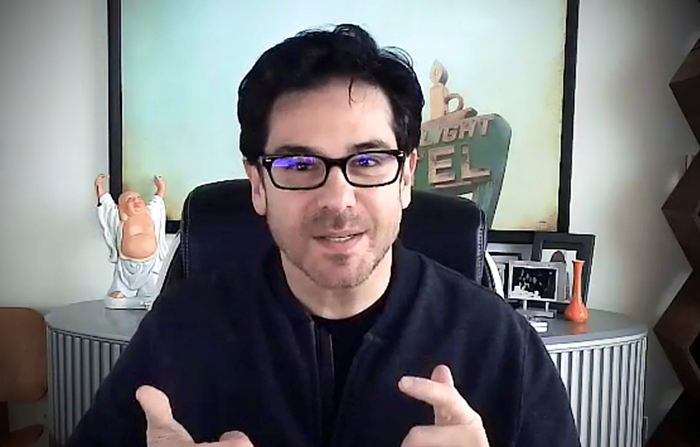A long-standing certified class-action lawsuit against CME Group, filed by members of the Chicago Board of Trade and Chicago Mercantile Exchange, poses a potential threat to the exchange group's membership market. A mediated settlement, encouraged by the judge, could reshape how trading rights are offered at the exchange and potentially benefit a class of shareholders, whose B-shares have declined while A-share values rose.
However, B-shareholders face a hurdle as CME lawyers will seek to decertify the class-action case in late January 2024 and also seek a summary judgment. The odds of success for CME in the decertification effort are slim, given that most certified class-action lawsuits are not decertified. Regarding summary judgment, it appears that there is a genuine dispute over the definition of a trading floor and related matters within the CBOT and CME core rights. This disagreement makes it unlikely to succeed.
As the case nears its conclusion, membership prices still primarily reflect their utility as trading rights rather than their potential value with a settlement. Some believe these memberships are undervalued and have been actively buying them over the past couple of years.
It's important to note that not all memberships are part of the class-action case, with firm memberships and those owned by exchange staff excluded. The time period for memberships to be included in the class has passed, meaning one can only join the lawsuit by purchasing a membership without certainty about its inclusion.
This situation could lead to the sale of memberships by the estates of long-time CME or CBOT members that include the right to participate in the lawsuit, potentially without the seller's awareness of the lawsuit's value.
Corporate members of the CME Group, who leverage single memberships for trading of multiples of traders, may find a resolution of the lawsuit has changed the CME's membership business model, leaving them with higher costs for accessing the markets.
"If it (the lawsuit) goes to trial and if you look at the risk to CME, if we win on Aurora being a trading floor, there's the damage number for the value of the exclusivity right that members haven't enjoyed for the past decade," said Steven E. Morrissey, the plaintiffs attorney. "Then there'll be a past damages number for that that's limited to the memberships that are in our class, which are individual memberships, but that number will be in excess of $1 billion in past damages."
"And then we'll also seek a declaration that Aurora is a trading floor, which would require CME to deal with the issue going forward as well," he said.
Furthermore, the class-action lawsuit may deter Cboe Global Markets from entering negotiations for a potential deal, particularly one involving CME stock. Similar to the Cboe-CBOT trading rights dispute that needed resolution before the CME-CBOT merger, this lawsuit might need to be resolved before any Cboe and CME deal can proceed.
The CME Group declined to comment on this story.
The CMELawSuit.com website says this about the lawsuit:
The lawsuit alleges that Defendants CME and CBOT have breached their obligations to the Class B Plaintiffs by denying the Class B Plaintiffs the best and most proximate access to the Globex electronic trading platform at the Aurora Data Center (“ADC”), by denying the Class B Plaintiffs the right to trade the full range of CME products on Globex at member rates, and by requiring the Class B Plaintiffs to pay certain fees for colocation at the ADC. Plaintiffs further allege that Defendants violated the Class B Plaintiffs’ rights by allowing Electronic Corporate Members and, on information and belief, other non-member customers to exercise the trading rights and privileges of exchange members without purchasing or leasing seats on the exchange, and by providing preferential fees to certain non-member customers. Plaintiffs seek damages and injunctive relief. The lawsuit, Langer, et al. v. CME Group, Inc., et al., No. 2014 CH 00829, was filed on January 15, 2014 and is currently pending in the Circuit Court of Cook County, Illinois, Chancery Division.
Since the launch of the Aurora Data Center ("ADC") by CME, the values of B-shares and A-shares have moved in opposite directions. While CME executives, board and staff receive performance-based rewards in the form of A-shares, the same does not apply to B-shares, according to a CME member.
A-shares have surged in value, increasing fivefold since the ADC's launch, while B-shares have plummeted, losing 75% of their value during the same period, as indicated by the member.
The trader emphasized the wisdom of purchasing a membership rather than leasing one, considering it among his best decisions. He explained that he might have been one of the numerous individual members who left the industry when faced with several months of trading losses if he had leased a membership. He credited a seasoned trader who once advised him, saying, "A carpenter does not rent his tools."
However, with membership prices sagging over the last few years, it has been easy for traders to lease instead of buying a membership, which has made it all too easy for individual traders to walk away when trading results were negative.
The judge wants the two sides to come to a mediated solution, rather than leaving it up to a jury unsophisticated in the ways of market structure. Should the decertification and summary judgment efforts of the CME fail this winter and spring, look for this case to move quickly to a mediated solution.
The plaintiffs' attorneys specialize in high-stakes cases such as the CME Group's legal battle against members of the Chicago Mercantile Exchange and the Chicago Board of Trade. Stephen E. Morrissey, co-lead counsel on the CME case from Susman Godfrey, serves on the Susman executive committee and previously chaired the expert committee in a complex litigation related to the contamination of the Flint, Michigan water distribution system. In that case, Morrissey's team has successfully obtained court-approved settlements valued at $626 million with several governmental defendants, including the state of Michigan.
This case might also be influencing the length of CME Group Chairman and CEO Terry Duffy's employment term, which was recently extended until the end of 2025. The CME Group board may not wish to have this lawsuit looming over the head of a new CEO.
Ultimately, the mediation is about monetary damages only. Dragging out the resolution of the lawsuit could continue to impact membership prices, legacy members' estates, individual trader retention and could have implications for future negotiations, deals and senior executive employment.

At the FIA Boca 2014 event, John Lothian News sat down and interviewed several Exchange CEOs about the competitive landscape, technology and industry growth....

Nasdaq’s CEO Bob Greifeld shook things up at the FIA Boca Conference with the announcement it plans to launch a new futures exchange that...

Peak6 was founded as a proprietary trading firm in Chicago by Matthew N. Hulsizer and Jennifer Just.